2023 Career Support Funds Granted
We’re providing over $8 million across 15 fellowships commencing in 2023 , supporting emerging NSW cancer researchers and exciting breakthroughs.
Across the fellowships there is exciting work being done across a wide range of fields, including lung, prostate, pancreatic and paediatric brain cancer, plus cancer prevention.
Career Development Fellowships
- Dr Amelia Parker – University of New South Wales
- Dr Sean Porazinski – University of New South Wales
- Dr Julia Steinberg – University of Sydney
- Dr Han Shen – University of Sydney
View all the Career Development Fellows >
Early Career Fellowships
- Dr Noushin Nasiri – Macquarie University
- Dr Guoying Wang – Macquarie University
- Dr Arnab Ghosh – University of Newcastle
- Dr Mahdi Zeraati – University of New South Wales
- Dr Holly Holliday – University of New South Wales
- Dr Nunki Hassan – University of Sydney
- Dr Emily Hewson – University of Sydney
- Dr Rebekah Laidsaar-Powell – University of Sydney
- Dr Tong Li – University of Sydney
- Dr Ziba Gandomkar – University of Sydney
- Dr Sirisha Tadimalla – University of Sydney
View all the Early Careers Fellows >
2023 Career Development Fellowships
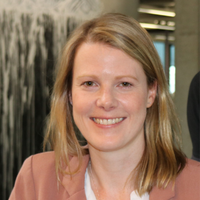
Grantee: Dr Amelia Parker
Administering Institution: Univeristy of New South Wales
Amount: $551,446
Project: Stromal co-targeting as a precision medicine approach towards improving lung cancer outcomes
My research vision is to develop a precision medicine framework to improve lung cancer treatment by applying innovative technologies to understand the interactions within the tumour ecosystem that promote tumour progression and to identify novel ways to target these mechanisms.(Show more)
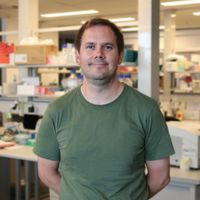
Grantee: Dr Sean Porazinski
Administering Institution: Univeristy of New South Wales
Amount: $560,620
Project: From functional genomics to precision medicine: targeting the dynamic cellular ecosystem of pancreatic cancer using clinically-safe agents
Pancreatic cancer, a disease with extremely poor prognosis, has been notoriously resistant to virtually all forms of treatment. Only 10% of patients diagnosed with pancreatic cancer survive 5 years post-diagnosis.
We have analysed patient tumour genomes and identified at least 13 pancreatic cancer subtypes that may respond to personalised therapies.(Show more)
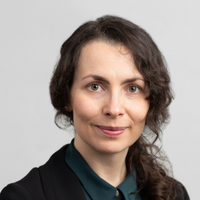
Grantee: Dr Julia Steinberg
Administering Institution: University of Sydney
Amount: $600,000
Project: Leveraging genomic risk tools to improve early detection and outcomes for prostate cancer
Prostate cancer is projected to cause over 100,000 deaths in Australia in 2020-2044. Five-year survival is very high if the cancer is diagnosed early, but remains poor for men diagnosed with advanced disease. Early detection of these cancers could save lives and prevent long-term negative health impacts from treatment.
(Show more)

Grantee: Dr Han Shen
Administering Institution: University of Sydney
Amount: $671,545
Project: Targeting tumour metabolism to improve the radiosensitivity in Diffuse Midline Gliomas
Diffuse midline glioma (DMG) is an aggressive brain tumour that primarily affects children between 6 to 9 years. The median survival for children with DMGs is less than 1 year. DMG arises from the brainstem, the control centre of many vital body functions like breathing and maintaining heart rate, which curtails surgical resection and none of drugs have been effective.
(Show more)
2023 Early Career Fellowships
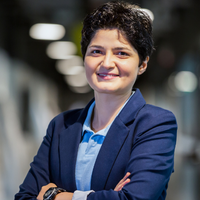
Grantee: Dr Noushin Nasiri
Administering Institution: Macquarie University
Amount: $597,999
Project: SunWatch: Smart UV NanoSensing Watch for Real-Time Monitoring of UV exposure
At 12 times the global average, Australia has the highest melanoma rates in the world. More than 2,000 people die from skin cancer every year, and someone is diagnosed with the disease every 30 minutes. It accounts for more diagnoses than all other cancers combined and costs more than $750 million annually to treat.(Show more)

Grantee: Dr Guoying Wang
Administering Institution: Macquarie University
Amount: $542,885
Project: Developing brain-targeted artificial viral vectors for gene delivery in the treatment of Glioblastoma
Glioblastoma (GBM) is the most common and aggressive primary brain tumour that affect a large population in the world.
(Show more)
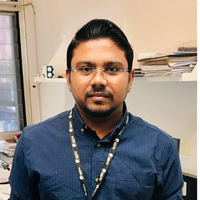
Grantee: Dr Arnab Ghosh
Administering Institution: University of Newcastle
Amount: $600,000
Project: Development of a clinic-ready blood-based test for screening and early detection of endometrial cancer in women
Endometrial cancer (cancer of the inner lining of the uterus) is the most common malignancy of the female reproductive tract and the fourth most common cancer in women, and its incidence is increasing.
(Show more)
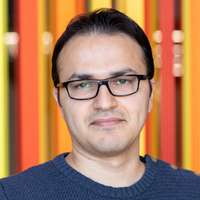
Grantee: Dr Mahdi Zeraati
Administering Institution: University of New South Wales
Amount: $570,637
Project: The role of i-Motif DNA structures in cancer
Whole genome sequencing has enabled us to identify genetic variations that arise in the development and progression of cancer. However, there remains a huge gap in our ability to interpret the significance of DNA mutations outside of protein-coding regions (i.e. ~98% of the genome).
(Show more)
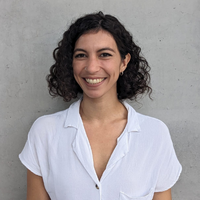
Grantee: Dr Holly Holliday
Administering Institution: University of New South Wales
Amount: $565,523
Project: Developing combination therapies with the FACT inhibitor CBL0137 for Diffuse Intrinsic Pontine Glioma (DIPG)
Effective treatments are urgently needed for the incurable childhood brain cancer Diffuse Intrinsic Pontine Glioma (DIPG). This very aggressive cancer mostly affects primary school-aged children, with an average survival time of only 10 months following diagnosis.
(Show more)

Grantee: Dr Nunki Hassan
Administering Institution: University of Sydney
Amount: $593,886
Project: PAR1 inhibition – developing a novel targeted therapy to eradicate leukaemic stem cells
Acute myeloid leukaemia (AML) is the deadliest form of blood cancer. Current treatments fail to kill highly resistant leukaemic stem cells (LSCs). This results in patient relapse and death. To improve patient survival, new therapies are urgently needed to target and eradicate LSCs.
(Show more)
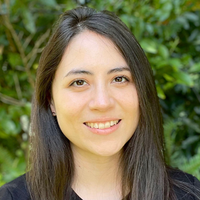
Grantee: Dr Emily Hewson
Administering Institution: University of Sydney
Amount: $393,250
Project: Enabling precise radiotherapy to improve outcomes for advanced lung cancer patients
Lung cancer leads to over 2,700 deaths per year in NSW which is more than any other cancer. Radiotherapy is a vital tool for the treatment of lung cancer, but the lung is also one of the most challenging sites to treat.
(Show more)

Grantee: Dr Rebekah Laidsaar-Powell
Administering Institution: University of Sydney
Amount: $586,000
Project: Development and evaluation of CarersCanADAPT: Distress screening, stepped care, online CBT and skills building to improve psychological outcomes of cancer carers
Family carers of people with cancer take on complex healthcare, home-care, and emotional responsibilities, often with little preparation or ongoing support. Cancer carers often report high levels of anxiety, depression, care giving burden, poor physical health, and poor quality of life.
(Show more)

Grantee: Dr Tong Li
Administering Institution: University of Sydney
Amount: $421,500
Project: Digital breast tomosynthesis to improve breast cancer screening for women at increased risk
Breast cancer is the most common female cancer in Australia, and an Australian woman has a 1 in 8 lifetime risk of developing this disease. Family history of breast cancer is a strong risk factor for breast cancer, and women with close relatives who have been diagnosed with breast cancer have 1-4 times increased risk of developing this disease.
(Show more)
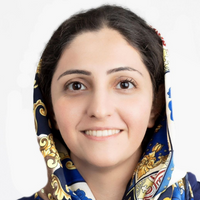
Grantee: Dr Ziba Gandomkar
Administering Institution: University of Sydney
Amount: $556,700
Project: Deep and hand-crafted Radiomic features as predictive and prognostic biomarkers in breast cancer
Nowadays, instead of using a “one-size-fits-all” approach to breast cancer (BCa) treatment, new tools are increasingly used to tailor therapeutic decision to a patient.
(Show more)

Grantee: Dr Sirisha Tadimalla
Administering Institution: University of Sydney
Amount: $551,916
Project: Personalised liver stereotactic body radiation therapy using magnetic resonance imaging (PRISM)
Primary liver cancer is in the top 10 causes of cancer death. In Australia, the number of people receiving a liver cancer diagnosis (most commonly hepatocellular carcinoma (HCC)) has increased 4 times over the past 30 years. In NSW alone, it is predicted that there will be 1000 new liver cancer diagnoses for 2022.
(Show more)